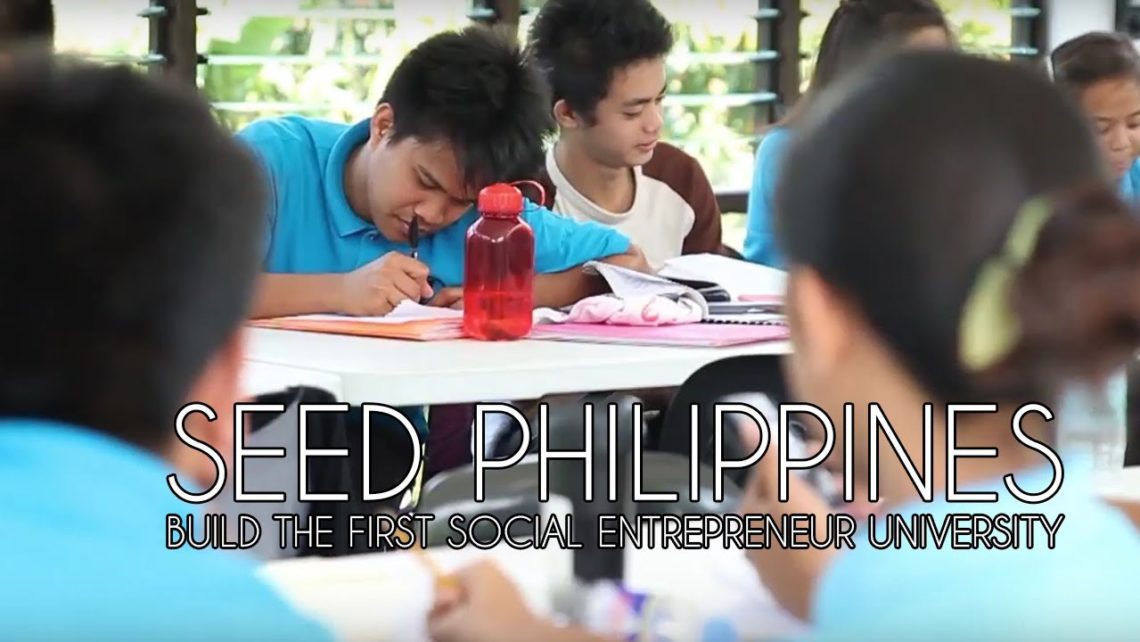Context: According to the 2015 Philippine Statistics Authority report, there were 21.9 million Filipinos living in poverty, with the lowest earners among them being farmers, followed by fisherfolk. To alleviate the problem of hardship, both government and non-government sectors contribute to lifting the people from poverty by implementing programmes and projects.
Gawad Kalinga Community Development Foundation, Inc. or Gawad Kalinga (GK) translates to give care in English. It is a Philippine-based movement that aims to end poverty by restoring dignity to the poor by empowering and developing programmes embodying faith and patriotism.
GK launched the School for Experiential and Entrepreneurial Development (SEED) in 2014. SEED fulfils GK’s vision by creating a platform for youth where they can learn entrepreneurship skills and be trained as leaders of the future.
Implementation of programme/initiative: To be a SEED scholar, one must be a graduate of the K to 12 school programme and must be a verified member of a family with low income status. Scholars are selected through the GK network of communities and partners who have deep roots in areas that are most in need of development. The programme is currently funded through the efforts of GK in raising donations for its operations.
Main challenges: As with most of the initiatives of GK, the needs of the poor are at the heart of SEED. It demands innovative disruptions such as seeing the poor as important leaders of enterprises to end poverty and by creating an education system that teaches a level of competence in skill and character as fast as possible, and to as many young people as possible that can be reached.
Results achieved: SEED has had 29 graduates from Batch 1 and 44 graduates from Batch 2. Currently, there are 35 scholars for Batch 3 who are now in the Sophomore Year, currently developing fresh enterprise ideas.
Tracking its beneficiaries shows that some Batch 1 SEED graduates were hired by GK Enchanted Farm at the management level. The GK Enchanted Farm is GK’s platform to raise social entrepreneurs, help local farmers and create wealth in the countryside. Some Batch 1 SEED graduates are also now working with other social enterprises. The Batch 2 graduates are currently in their Gap Year (an extension programme after the 2-year SEED programme) and are now establishing their own social enterprises.
Moving Forward: As previously mentioned, the poorest in the Filipino community are farmers and fisherfolk. Consequently, SEED enables its graduates to involve, engage, and invest in stakeholders who reside at the bottom of the income pyramid (farmers, community partners etc). Further success to that which has been achieved is largely based on developing a culture in which hard work is valued and those who graduate as SEED scholars remain committed to improving the development of the communities they are from.
Replicability: The goal to alleviate poverty in the Philippines begins with small steps by creating an impact for the poorest in the community. The programme is already on its way to expansion, alongside the expansion of the Enchanted Farm initiative. The sustainability of the programme is linked to the growth of the GK movement, specifically to the success of the increased number of enterprises developed by graduates. Other countries may adopt the programme, and foreign partners of GK are already starting consultations and discussions about the replication of SEED in their respective origin countries.
References:
http://psa.gov.ph/
http://www.gk1world.com/
Interview, Billy Joel Santos, Gawad Kalinga
Project Details
Date: October 11, 2017
